Frequently Asked Questions – Termites
Because Suburban Pest Management specialises in termite management and because we are carrying out termite solutions every day, we get asked about subterranean termites all the time, so we thought we would answer some of the most commonly asked questions we get asked about termites.
How do I know if I have termites?
Because they conceal themselves so well, normally you won’t notice a termite problem until they’ve already caused some sort of damage. However, there are a number of ways you can check for termites:
- If there is any swelling in skirting boards, window architraves, doorframes, or if any are soft to touch, or even if there’s a hollow sound, it’s usually an indication that there’s at least termite damage, if not termite activity,
- Another indication could be any high moisture, so if you’ve got a leaking shower or leaking plumbing, it’s creating a moist area. It can encourage termites and that can be a hot spot of where they want to go,
- Any mudding coming out of the walls, or skirtings under the carpet, any mudding coming up through the foundations, any mud trails,
- Doors are hard to shut or there’s bowing in the floor, or bowing or sagging in the ceiling,
- Ultimately, it depends on the type of building that you’re dealing with, whether it has a subfloor, it’s built up off the ground, whether it’s on concrete, whether it’s built into a hill, there are so many factors and many different building designs that show different signs of termites.
Are white ants the same as termites?
White ants are the same as termites. They’re commonly referred to as white ants, because they bear some similarity to ants, but they are actually more closely related to cockroaches.
What does termite damage look like?
There are different species of termites, they can work in different ways, and the damage they cause is also different depending on the species – damage that looks like fungal decay or rot, the amount of mud that’s either in or on the timber, and the unique staining or speckling that the termites leave behind.
What attracts termites to your house?
There are two main things that attract termites, moisture and a food source. If you have leaking down pipes, leaking taps, anything that’s encouraging moisture at the base of the building, that will attract termites. Secondly, they need a food source. When timber is in contact with the ground, it inevitably decays, and releases carbon dioxide into the ground and that’s what termites sense and get attracted to. So any timber products around the grounds, whether it’s just a log, whether it’s timber fencing in ground contact, stumps, even treated timber is going to decay and have that carbon dioxide release and encourage termites towards your building.
How do I get rid of termites?
A lot of people are surprised when we say that we don’t actually want to eliminate all termites. In the bush, away from buildings, they serve an ecological purpose. The ones we focus on are the aggressive species that damage homes and buildings. So rather than focus on termites out in the yard, we really focus on why we are trying to get rid of them in the first place, which is protecting your home. We recommend a termite baiting system around the home, which normally requires the help of a professional.
How do I get rid of termites naturally?
When we hear the term ‘naturally’, we picture ‘non-chemical’ methods. There are a number of non-chemical methods. The bait in termite bait stations is not a chemical, it is an insect growth regulator, which is designed for termites to consume the bait, take it back to the colony and achieve elimination of the entire colony, and is a very effective method for killing colonies of termites.
The most effective way to properly protect your home, using termite bait stations, is having them installed and monitored regularly by a professional.
Can I treat termites myself?
Individual termites are actually really easy to kill. You could use almost anything, even water. The problem is termite colonies can have hundreds of thousands of termites, some a million or more, so by killing a few hundred that you see, you’re not necessarily getting to the heart of the problem that you don’t see. This is why we don’t recommend you treat them yourself.
If you discover termites, the best advice is to leave the area undisturbed and call in a professional.
What is the best treatment for termites?
The best treatment of termite control really depends on the type of building that we’re dealing with, the type of termite that we’re dealing with, and the long-term solution that we’re trying to achieve. Ultimately, we can use a chemical option, we can use a chemical baiting option, or we can use a combination of both. it’s important to understand that treating the live termites usually it doesn’t solve anything long-term. So even if we can eliminate that colony, termites leave behind a pheromone trail. So all it takes is another colony to locate that trail and then straight back into the building, causing more damage.
At SPM, we only use quality products, and we are always looking at the long-term strategy. It is not just about the products, it is important that everything is installed correctly, so we always offer our own quality guarantee, not just a product guarantee.
What can I do to prevent termites?
The best way to prevent termites in your home is to reduce the conducive conditions, or all the things encouraging them towards the building. These are things like poor drainage, leaking taps, anything draining at the base of the building that’s creating a wet spot. It could be things like mulch that’s creating a lot of moisture underneath. And then, of course, we’re looking at eliminating the food sources. So wood chip, timber edging, logs, and stumps, anything that we can get away from the building is going to reduce the risk of termite attack.
The best thing to do is to get a full termite inspection by a professional at least once a year. Your inspector can identify if there is any termite activity in the house or yard, and they can give you advice on what those conditions are, and how to go about rectifying them to keep termites away.


